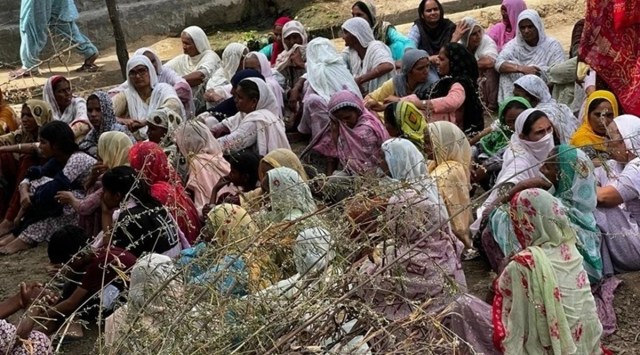In an attempt to increase participation of women in the gig economy, the NITI Aayog has proposed fiscal incentives like tax breaks or startup grants for companies with about one-third of their workforce as women and people with disabilities (PwDs).
“Fiscal incentives such as tax-breaks or startup grants may be provided for businesses that provide livelihood opportunities where women constitute a substantial portion (say, 30%) of their workers. Likewise, a platform with high accessibility or high degree of participation of PwDs too may be rewarded with fiscal incentives,” NITI Aayog said in a report titled ‘India’s Booming Gig and Platform Economy’.

Based on a survey conducted across urban centres of India, the report also said that women are more likely to take up platform jobs after their education and marriage.
The report also said that female labour force participation in India has remained low, oscillating between 16 per cent to 23 per cent in the last few years. Similarly, persons with disabilities, who make up for 2.11 to 10 per cent of India’s population, have a labour force participation rate of 36 per cent. ‘Structural barriers like access to education and lack of skilling have hindered participation of the two demographic groups in the country’s labour force,” the report said.
However, according to the report, platform companies offer flexibility and choice of labour to all workers in general, and women in particular, empowering them to monetise their idle assets when and where they want — a benefit missing in traditional employment sectors — making them an attractive opportunity for women and persons with disabilities.
The report estimates that more than 7.5 million workers were engaged in the gig economy in 2020-21. This could grow to 23.5 million workers in the next eight years, making up for 4.1 per cent of total livelihood in India. According to the report, at present about 47 per cent of the gig work is in medium skilled jobs, about 22 per cent in high skilled, and about 31 per cent in low skilled jobs. Gig workers can be broadly classified into platform and non-platform workers. Platform workers are those whose work is based on online software apps or digital platforms while non-platform gig workers are generally casual wage workers, working part-time or full- time. While platform companies have created avenues of employment, it has often been marred by low wages, unequal gender participation, and a lack of possibility for upward mobility within an organisation.
Apart from incentivising platforms that focus on recruiting women workers, The report also recommended that businesses have a higher share of women managers and supervisors in the organisation to ensure that communication to workers does not perpetuate gender stereotypes. “To encourage more women, platforms may develop better infrastructure and work design, enhance skill development, asset ownership, access to digital skills and technology, undertake gender sensitisation and accessibility awareness programmes for workers and their families,” Sakshi Khurana, consultant at Niti Aayog’s skill development, labour and employment vertical, and part of the research team for the report, told The Indian Express.
Story continues below this ad
To encourage increased and equal participation in the gig economy, the report said social security benefits be extended to workers in a partnership mode, as envisaged in the Code on Social Security, 2020 — as such, the report said, businesses should consider providing income support to workers as it would be a “critical step in providing assured minimum earnings and social security from income loss in the wake of uncertainty or irregularity in work”. It also said that businesses offer paid sick leave to their workers apart from insurance cover.
Gig workers are typically hired by companies on a contractual basis and are not considered their employees. As a result, they do not receive some of the benefits that an on roll employee of the company may have — this means that they often do not receive benefits like paid sick and casual leaves, travel and housing allowances, and provident fund savings, among other things.
The report also recommended that firms adopt policies that offer old age or retirement plans and benefits and other insurance cover for contingencies such as injury arising from work that may lead to loss of employment and income. “Such plans and policies may be uniquely designed by a firm, in partnership with insurance companies, or could be designed and offered in collaboration with the government, as envisaged under the Code on Social Security, 2020.” A social security cover out of a corpus fund can also help gig workers in case of contingencies, it said.
Niti Aayog added that access to institutional credit could be enhanced through financial products specifically designed for platform workers and those interested to set-up their own platforms. “Venture capital funding, grants and loans from banks and other funding agencies should be provided to platform businesses of all sizes at the pre-revenue and early-revenue stages,” it said. Financial technology companies can be leveraged to provide cash flow-based loans to workers as against collateral-based loans, thereby catering to the needs of those new to credit. “Special emphasis may be placed on access to formal credit for women and persons with disabilities,” it added.

































